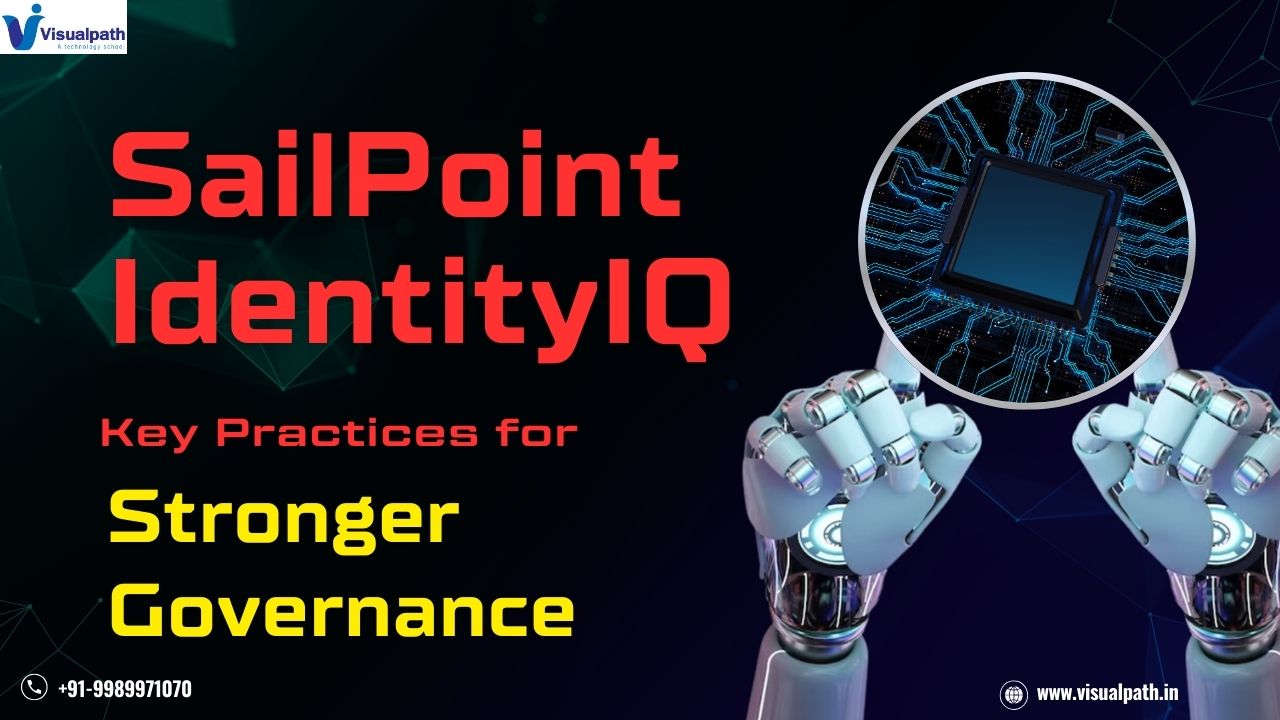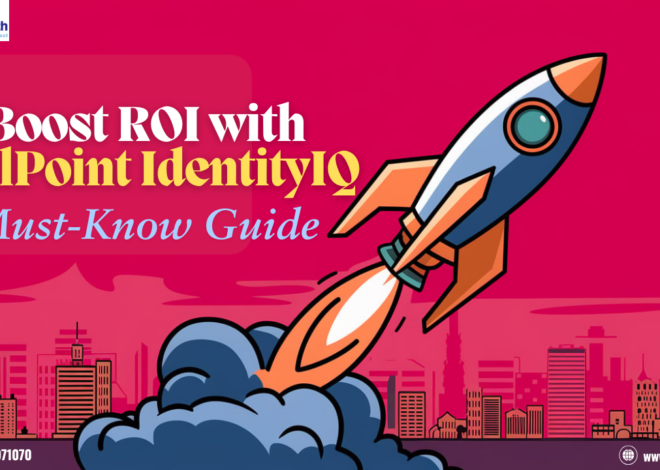Sailpoint Identity IQ Online Training In today’s digital landscape, organizations face increasing pressure to maintain robust security and compliance standards. As businesses expand, the complexity of managing user access to critical applications and data grows. SailPoint IdentityIQ is a powerful identity governance platform that helps organizations strengthen their governance practices by ensuring the right people have the right access at the right time. In this article, we will explore key practices for leveraging SailPoint IdentityIQ to enhance governance and security. Sailpoint Course
1. Understanding Identity Governance and SailPoint IdentityIQ
Identity governance is the process of managing and securing user access across an organization’s IT environment. It involves ensuring that the appropriate individuals have the proper access to systems and data, while also monitoring and auditing these permissions for compliance.
SailPoint IdentityIQ is a leading solution in the identity governance space, providing businesses with tools to automate and streamline the management of user identities and access rights. It integrates seamlessly with existing IT systems, making it easier to monitor and enforce policies that support security and compliance initiatives.
By adopting SailPoint IdentityIQ, organizations can implement an identity governance framework that ensures a controlled and audit-ready environment, with full visibility and accountability for access to critical resources.
2. Key Practices for Effective Governance with SailPoint IdentityIQ
a. Implement Role-Based Access Control (RBAC)
One of the cornerstones of Sailpoint Identity IQ Online Training is defining and enforcing roles within the organization. Role-based access control (RBAC) is a model that assigns access permissions based on the roles assigned to users.
With SailPoint IdentityIQ, organizations can define roles that map to business functions, ensuring that users are only granted access to the systems and data relevant to their job responsibilities. By implementing RBAC, businesses can avoid unnecessary access rights and reduce the risk of over-provisioning, which is often a root cause of security breaches.
The platform’s role mining capabilities help organizations identify and refine roles based on user behavior and access patterns, ensuring that roles remain aligned with the evolving needs of the business.
b. Automate Access Reviews and Certification
Regular access reviews are vital for maintaining a secure IT environment. Manual access review processes are often time-consuming, error-prone, and susceptible to human oversight. Sailpoint Course provides powerful automation capabilities for access reviews and certifications, streamlining these processes and ensuring that only the right individuals retain access to sensitive systems.
The platform automatically generates access review campaigns and empowers managers to review and certify access for their team members. By automating this process, organizations can improve the frequency and efficiency of access reviews, ensuring that access rights are up to date and compliant with internal policies and external regulations.
c. Enforce Least Privilege Access
The principle of least privilege dictates that users should only have the minimum level of access necessary to perform their tasks. Enforcing this principle reduces the attack surface by limiting the potential impact of security breaches and minimizing the chance of unauthorized access.
SailPoint IdentityIQ allows organizations to enforce least privilege access by using features such as just-in-time provisioning, which grants users access to resources only when they need them. Additionally, organizations can integrate policy-based controls to automatically revoke or adjust user access when changes occur in roles or responsibilities.
d. Integrate with Security and Compliance Tools
A strong governance framework requires seamless integration between identity governance systems and other security and compliance tools. SailPoint IdentityIQ supports integration with various third-party applications and platforms, including security information and event management (SIEM) systems, cloud security tools, and compliance reporting tools.
By integrating SailPoint IdentityIQ with existing security infrastructure, organizations can enhance their monitoring capabilities and create a comprehensive approach to identity governance. This ensures that security policies are enforced consistently across all platforms and that compliance efforts are streamlined, reducing the complexity of audits and reports.
3. Monitoring and Auditing for Continuous Improvement
SailPoint IdentityIQ provides comprehensive monitoring and auditing capabilities, allowing organizations to track user activity, access changes, and policy enforcement. By leveraging these features, businesses can gain real-time insights into user behavior and identify potential vulnerabilities or policy violations.
The platform’s audit trail functionality helps organizations maintain a complete history of access events, which is critical for regulatory compliance. Additionally, ongoing monitoring helps organizations spot unusual patterns of access that may indicate security incidents or policy violations, enabling quick intervention and resolution.
Continuous monitoring and auditing are essential to maintaining strong governance practices. By leveraging the reporting and analytics capabilities of SailPoint IdentityIQ, organizations can continuously improve their identity governance strategies.
4. Training and Awareness for Users and Administrators
An often-overlooked aspect of governance is the role of users and administrators in enforcing security policies. To maximize the effectiveness of SailPoint IdentityIQ, organizations should invest in training programs that educate users about the importance of access management and security best practices.
For administrators, training should focus on the platform’s features, such as role management, access certifications, and policy enforcement. Additionally, users should be made aware of their responsibilities regarding access requests, password management, and adhering to security policies.
Creating a culture of awareness around identity governance helps ensure that SailPoint IdentityIQ is used effectively and that the platform’s capabilities are maximized to maintain a secure, compliant environment.
Conclusion
SailPoint IdentityIQ is a powerful tool for organizations looking to enhance their identity governance practices. By implementing key strategies such as role-based access control, automating access reviews, enforcing least privilege, and integrating with other security tools, businesses can build a stronger governance framework that mitigates risk and ensures compliance. Ongoing monitoring, auditing, and user training are essential to maintaining a proactive and secure identity management environment. As businesses face growing security challenges, SailPoint IdentityIQ stands as a vital solution for achieving comprehensive identity governance and strengthening overall organizational security.
By adopting these best practices, organizations can ensure that their identity governance framework remains robust, scalable, and responsive to the evolving digital landscape.
Visualpath is the Leading and Best Institute for learning in Hyderabad. We provide Sailpoint Training Institutes in Hyderabad. You will get the best course at an affordable cost.




